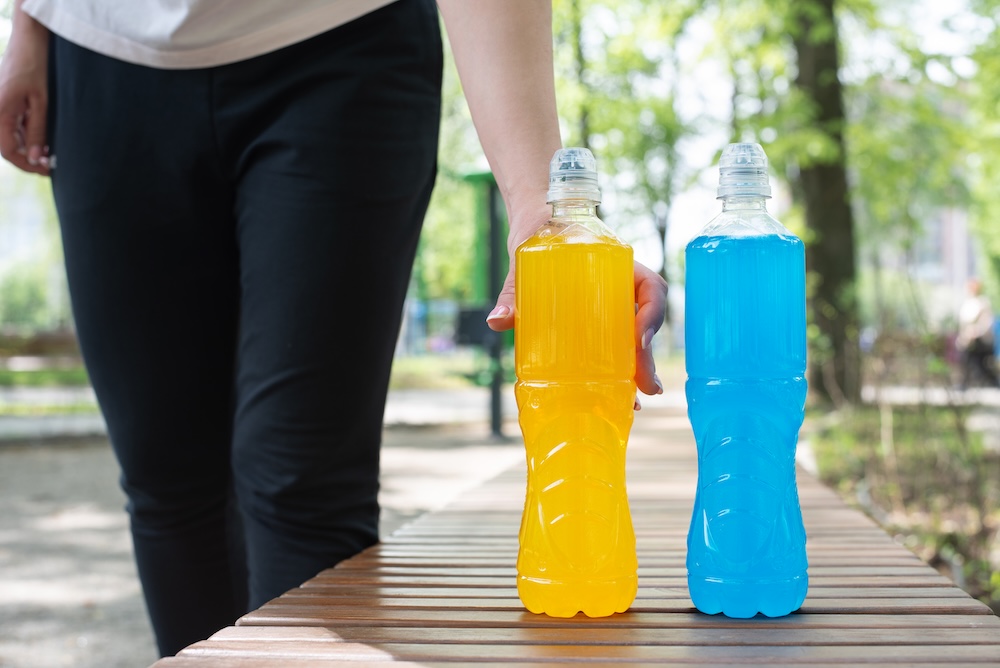What Is Vitamin Water?
Vitamin water refers to beverages that are enhanced with added vitamins, minerals, and often flavors or sweeteners. Marketed as a healthier alternative to sodas or energy drinks, vitamin waters promise hydration with an extra boost of nutrients.
Popular brands include Vitaminwater (by Coca-Cola), Propel (by Gatorade), and a wide range of store-label alternatives. But do these drinks actually benefit your health — and are they worth their environmental footprint?
What’s in a Typical Bottle of Vitamin Water?
Ingredients vary, but a standard 20 oz bottle may contain:
- Vitamin C and B vitamins (B3, B5, B6, B12)
- Electrolytes like potassium and magnesium
- Sweeteners — either sugar or non-caloric options like stevia or erythritol
- Artificial or natural flavors
- Colorants — some from natural sources, others synthetic
Sugar Content: A Hidden Downside
Many varieties of vitamin water contain up to 32 grams of sugar — nearly as much as a can of soda. While some offer zero-sugar versions, these often contain artificial sweeteners, which may not align with clean or natural eating goals.
Health Pros and Cons
Potential Benefits:
- Convenient source of water and select vitamins
- May be helpful for people with mild vitamin deficiencies
- Some options offer electrolytes for post-exercise hydration
Key Drawbacks:
- Excessive sugar undermines health benefits
- Added synthetic vitamins may not absorb as well as food-based sources
- Not necessary for people with balanced diets
- Overconsumption of certain vitamins (like B6) could cause health issues in large amounts
Vitamin Water vs. Other Beverages
| Beverage | Hydration | Sugar Content | Nutrient Additives | Sustainability | Overall Health Impact |
|---|---|---|---|---|---|
| Vitamin Water | High | Medium–High | Yes | Low–Medium | Mixed |
| Tap Water | High | 0 | None | High | Excellent |
| Lemon Water (DIY) | High | Very Low | Yes (natural) | High | Excellent |
| Coconut Water | High | Medium | Natural | Medium | Good |
| Sports Drinks | High | High | Yes | Low | Fair–Poor |
Environmental Impact
Packaging Waste
Vitamin water is almost always sold in plastic bottles. With millions consumed globally, the environmental cost includes:
- Single-use plastic waste
- High transportation emissions
- Low recycling rates
Manufacturing & Ingredients
- Producing synthetic vitamins involves energy-intensive chemical processes
- Artificial flavors and sweeteners can also contribute to chemical waste
- Water extraction and bottling adds strain in areas facing water scarcity
Healthier and Greener Alternatives
DIY Vitamin-Infused Water
Create your own low-impact, nutrient-rich beverage:
- Cucumber + mint + lemon
- Orange slices + ginger
- Berries + basil + water
Let it sit in a glass container in the fridge for 2–4 hours for best flavor.
Add Whole Foods
- Chia seeds: Rich in omega-3s and fiber — soak in water for a refreshing drink
- Lemon or lime juice: Adds flavor and vitamin C
- Herbal teas: Naturally flavored and calorie-free
Use Refillable Bottles
Invest in a stainless steel or BPA-free reusable bottle to keep your homemade drinks cool and cut plastic waste entirely.
Common Questions About Vitamin Water
- Is vitamin water healthier than soda?
Slightly — it has fewer calories and may contain nutrients, but some still have high sugar levels. - Does it hydrate better than water?
Not really. Plain water hydrates just as effectively, without additives. - Can it help with vitamin deficiencies?
In some cases, yes. But a balanced diet is a better source of essential nutrients. - What’s the best time to drink vitamin water?
After exercise or illness — but only if your body needs replenishment. - Is zero-calorie vitamin water healthier?
It avoids sugar, but artificial sweeteners may have other drawbacks depending on your health goals. - Is vitamin water eco-friendly?
Not particularly. It involves single-use plastics and synthetic production processes.
Final Thoughts: Skip the Hype, Sip Smarter
Vitamin water might seem like a shortcut to hydration and nutrition, but in reality, it’s often just flavored water with marketing muscle. While occasional use is fine, it’s rarely necessary — especially if you eat a balanced diet and stay hydrated with low-impact options like filtered tap water.
For health-conscious and eco-minded individuals, the best move is to make your own infused water or herbal hydration blends. You’ll save money, reduce waste, and nourish your body with real ingredients — no label-reading required.








